We are all aware that energy efficiency plays a crucial role in lowering our carbon footprint and cutting down costs on utility bills.
But did you know that energy efficiency ratings also have a direct impact on the performance of heat pumps?
In this article, we will delve into the link between energy efficiency ratings and heat pump performance.
By understanding this connection, we can make informed decisions when it comes to choosing the right heat pump for maximizing energy savings and reducing environmental impact.

Key Takeaways
- Energy efficiency ratings directly impact heat pump performance
- Understanding labels helps in making informed choices and enjoying energy-saving benefits
- Factors like proper sizing, installation, maintenance, and inspections affect heat pump performance and energy efficiency
- High-efficiency heat pumps provide better performance, cost savings, and improved environmental sustainability
The Importance of Energy Efficiency Ratings for Heat Pump Performance
We believe that understanding the energy efficiency ratings is crucial for maximizing heat pump performance. Energy efficiency ratings are an important factor to consider when purchasing a heat pump because they directly impact energy savings and environmental impact.
These ratings, typically displayed as a SEER (Seasonal Energy Efficiency Ratio) or HSPF (Heating Season Performance Factor) value, indicate the efficiency of the heat pump in converting energy into heating or cooling output. Higher ratings indicate better efficiency, resulting in lower energy consumption and reduced utility bills.
Additionally, heat pumps with higher ratings have a lower environmental impact, as they require less energy to operate and generate fewer greenhouse gas emissions. By considering the energy efficiency ratings of heat pumps, homeowners can make informed decisions that not only maximize their energy savings but also contribute to a more sustainable future.
Understanding Energy Efficiency Labels for Heat Pumps
To fully comprehend the energy efficiency of heat pumps, it’s essential to understand the labels provided for them. These labels are designed to provide consumers with valuable information about the energy efficiency of a particular heat pump model. Here are four key things to know about energy efficiency labels for heat pumps:
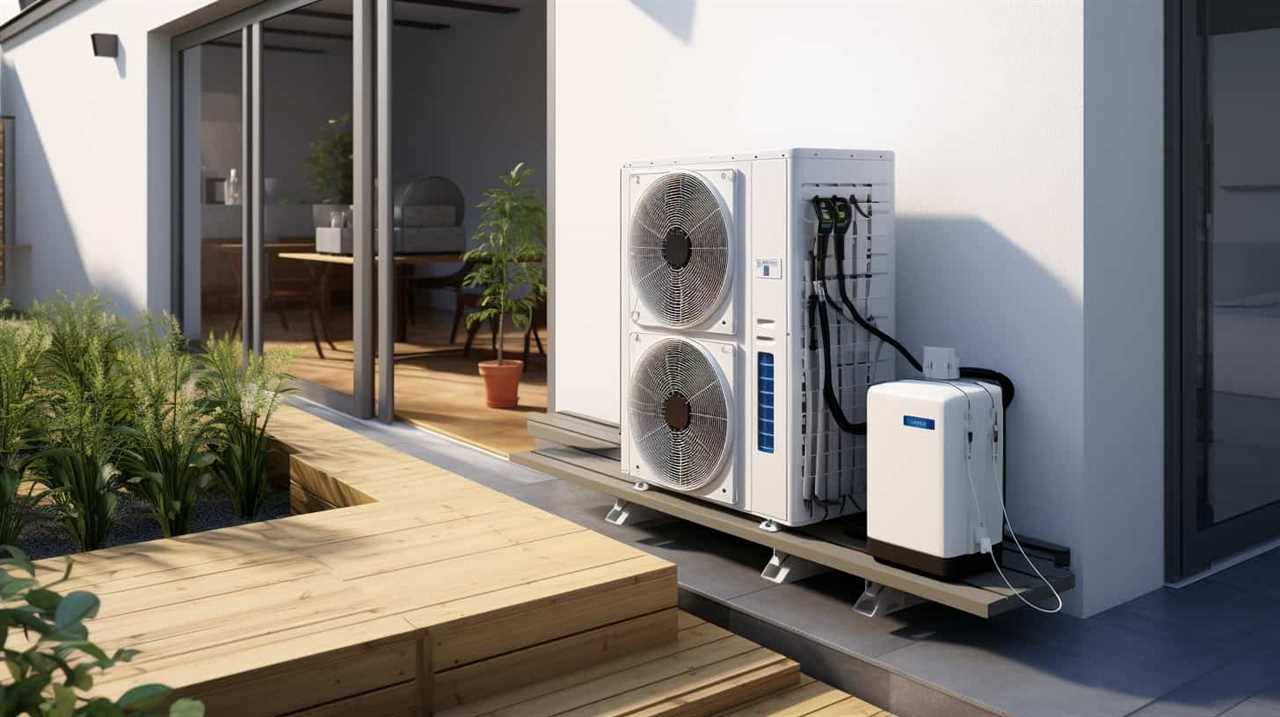
-
Energy Efficiency Benefits: The labels provide details on the energy efficiency benefits of a heat pump, such as the estimated annual energy consumption and potential savings compared to less efficient models. This information helps consumers make informed decisions and choose the most energy-efficient option.
-
Energy Efficiency Standards: The labels also indicate whether the heat pump meets specific energy efficiency standards set by regulatory bodies. This ensures that consumers are getting a product that meets the required standards and operates efficiently.
-
Performance Metrics: The labels include performance metrics, such as the Seasonal Energy Efficiency Ratio (SEER) and Heating Seasonal Performance Factor (HSPF). These metrics help consumers compare the energy efficiency of different heat pump models and select the one that best suits their needs.
-
Additional Information: The labels may provide additional information, such as the noise level of the heat pump and the type of refrigerant used. This allows consumers to consider factors beyond energy efficiency when making their purchasing decisions.
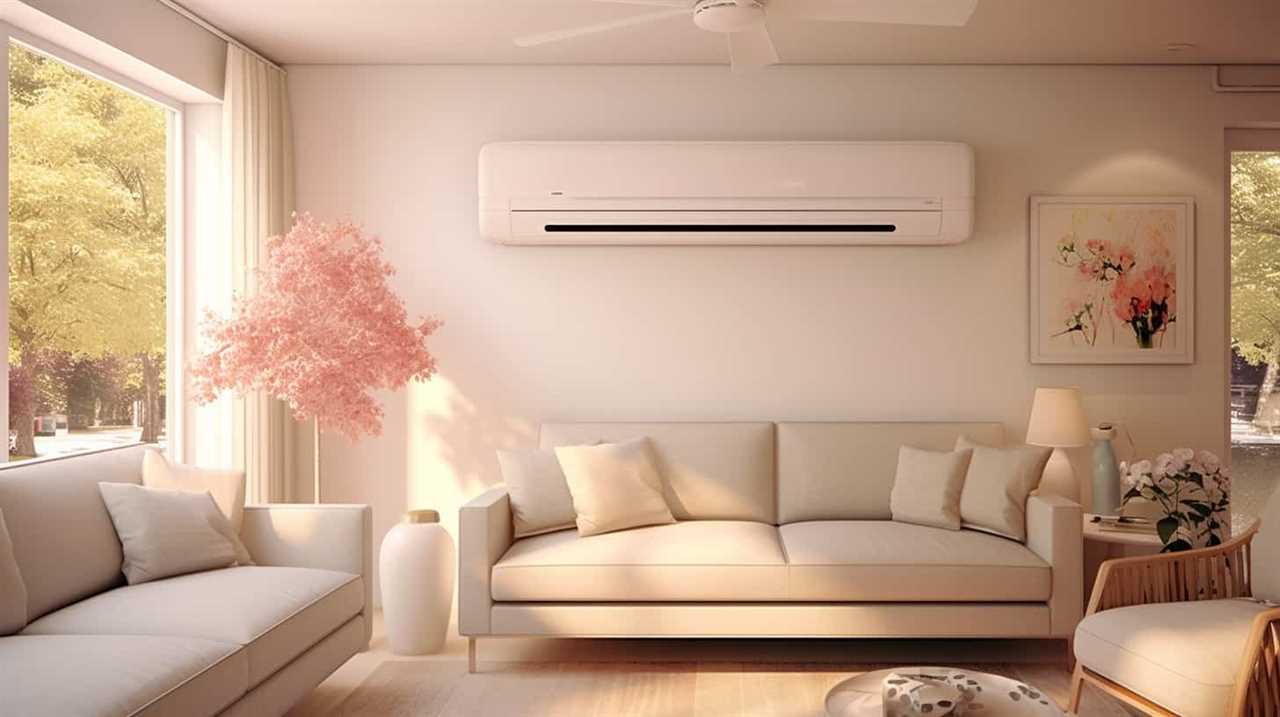
Understanding energy efficiency labels is crucial for consumers who want to make informed choices and enjoy the energy-saving benefits of heat pumps. By carefully reviewing these labels, consumers can select a heat pump that meets their needs while also reducing their energy consumption and saving money in the long run.
How Energy Efficiency Ratings Impact Heat Pump Efficiency
The energy efficiency ratings of heat pumps directly impact their overall efficiency and performance. Understanding these ratings is crucial for homeowners who want to maximize their energy savings and ensure optimal performance from their heat pump. Energy efficiency ratings provide valuable information about a heat pump’s ability to convert energy input into heating or cooling output. Higher ratings indicate greater energy efficiency, resulting in lower energy consumption and cost savings over time.
To illustrate the performance impact of energy efficiency ratings, let’s consider the following table:
| Energy Efficiency Rating | Energy Savings (%) | Performance Impact |
|---|---|---|
| High | 30-50 | Optimal |
| Moderate | 10-30 | Adequate |
| Low | <10 | Inefficient |
As shown in the table, heat pumps with higher energy efficiency ratings can deliver significant energy savings, while those with lower ratings may be less efficient and costlier to operate.
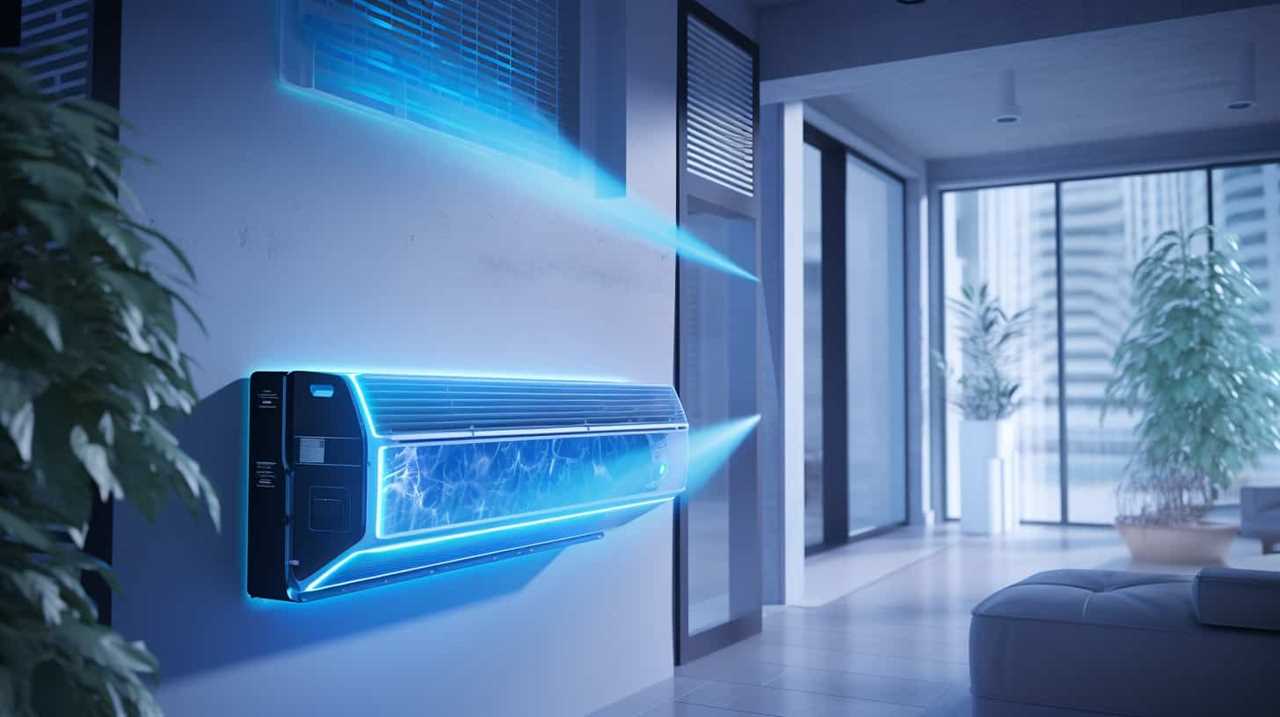
Understanding the link between energy efficiency ratings and heat pump efficiency is essential for making informed decisions. In the subsequent section, we will explore the key factors that affect heat pump performance and energy efficiency.
Key Factors Affecting Heat Pump Performance and Energy Efficiency
Some key factors that affect heat pump performance and energy efficiency include the size of the heat pump, the quality of installation, and the proper maintenance and care.
To ensure optimal performance and energy efficiency, consider the following:
-
Right-sizing the heat pump: Selecting a heat pump that’s appropriately sized for your home is crucial. An oversized or undersized heat pump can lead to inefficiencies and increased energy consumption.
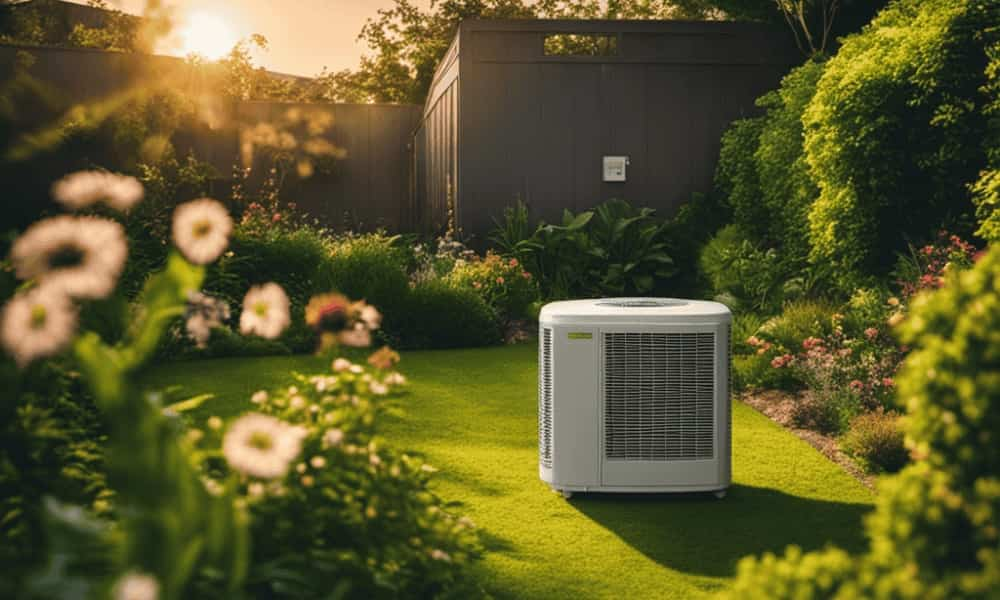
-
High-quality installation: Proper installation is vital for heat pump performance. Hiring a professional installer who follows industry standards and guidelines can help avoid common installation errors that could impact efficiency.
-
Regular maintenance: Regular maintenance and care are essential to keep your heat pump operating at peak efficiency. This includes cleaning or replacing air filters, inspecting and cleaning coils, and lubricating moving parts.
-
Regular inspections: Regular inspections by a qualified technician help identify and address any potential issues early on. This can prevent major breakdowns and ensure optimal performance and energy efficiency.
Maximizing Energy Savings With High-Efficiency Heat Pump Ratings
Our goal is to maximize energy savings with high-efficiency heat pump ratings.
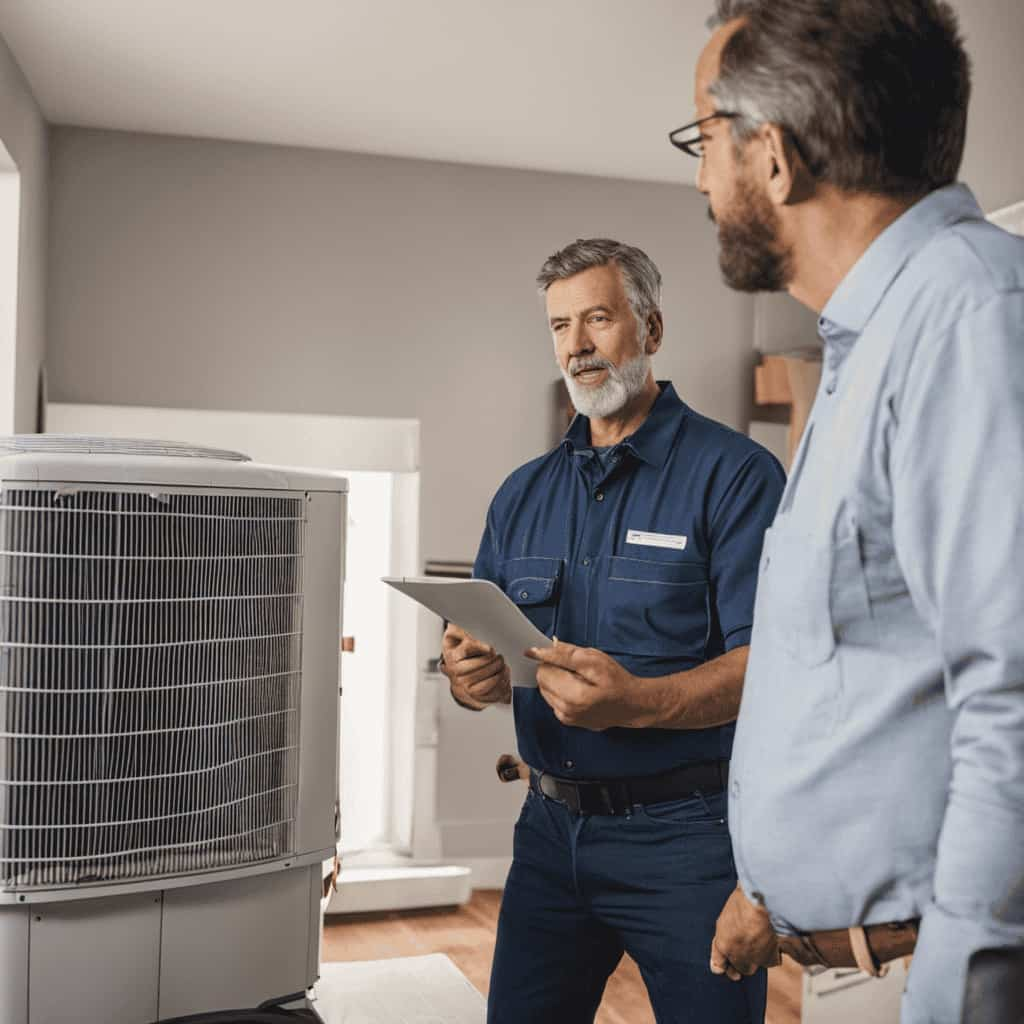
When it comes to energy saving tips, investing in a high-efficiency heat pump is a cost-effective solution that can significantly reduce your energy consumption and lower your utility bills. Heat pumps with high efficiency ratings are designed to provide optimal performance while using less energy.
By opting for a high-efficiency heat pump, you can enjoy the same level of comfort while saving on energy costs. Additionally, these heat pumps often come with advanced features such as variable speed motors, smart thermostats, and zoning capabilities, allowing you to further optimize your energy usage.
It’s important to choose a heat pump with a high SEER (Seasonal Energy Efficiency Ratio) and HSPF (Heating Seasonal Performance Factor) rating to ensure maximum energy savings.
Frequently Asked Questions
How Much Does a High-Efficiency Heat Pump Cost Compared to a Standard One?
A high-efficiency heat pump typically costs more upfront compared to a standard one. However, the benefits of energy savings and cost effectiveness over time make it a worthwhile investment for homeowners.
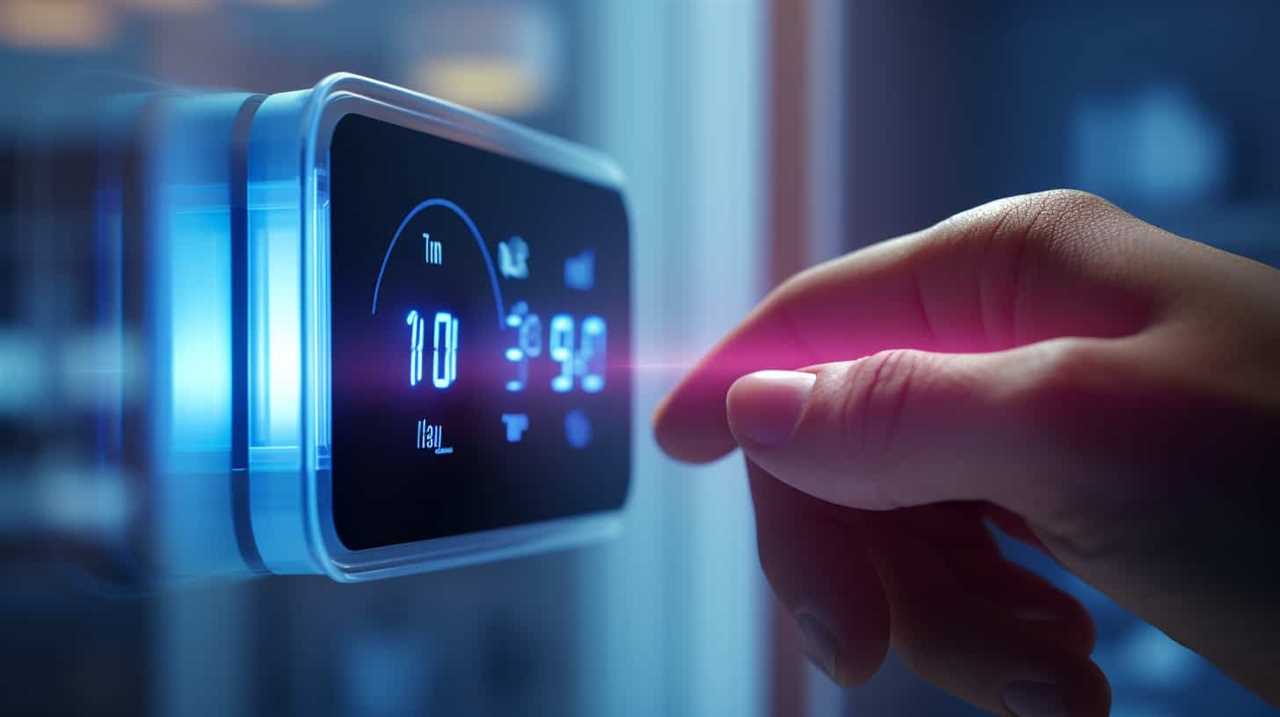
Are There Any Government Incentives or Rebates Available for Purchasing a High-Efficiency Heat Pump?
Yes, there are government incentives and rebates available for purchasing a high-efficiency heat pump. These incentives can help offset the higher cost of a high-efficiency heat pump and make it more affordable for homeowners.
Can a Heat Pump Be Used as a Standalone Heating and Cooling System or Does It Require Additional Equipment?
Yes, a heat pump can be used as a standalone heating and cooling system, eliminating the need for additional equipment. It efficiently transfers heat between the indoors and outdoors, providing both warmth and coolness.
What Is the Average Lifespan of a High-Efficiency Heat Pump?
The average lifespan of a high-efficiency heat pump varies depending on factors such as maintenance and usage. However, it is generally expected to last around 15-20 years. When considering cost comparison, it is important to factor in energy savings over time.
Are There Any Maintenance Requirements Specific to High-Efficiency Heat Pumps That Homeowners Should Be Aware Of?
When it comes to high-efficiency heat pumps, homeowners need to be aware of specific maintenance requirements. By staying on top of regular inspections and cleanings, we can ensure optimal performance and longevity.
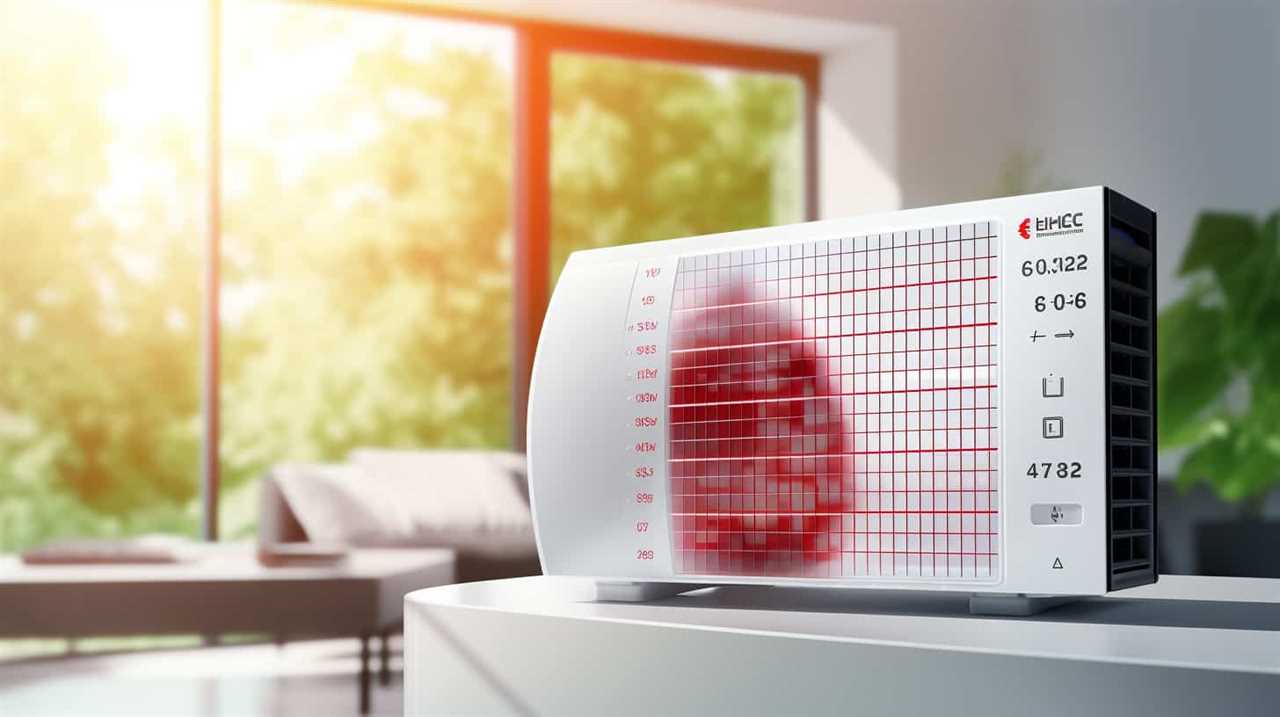
Conclusion
In conclusion, understanding energy efficiency ratings is crucial for optimizing heat pump performance. Energy efficiency labels provide essential information about a heat pump’s efficiency, helping consumers make informed decisions. These ratings directly impact the efficiency of heat pumps, allowing for significant energy savings.
Additionally, factors such as proper installation, regular maintenance, and suitable weather conditions also affect heat pump performance and energy efficiency.
By maximizing high-efficiency heat pump ratings, consumers can enjoy energy savings like a cheetah effortlessly gliding through the grasslands.









